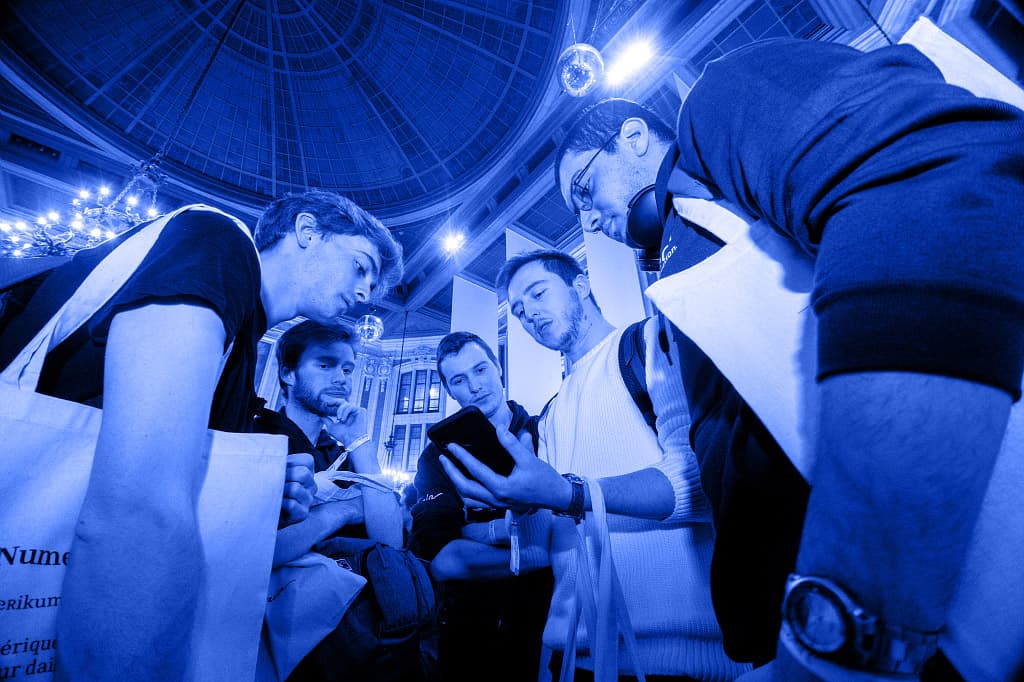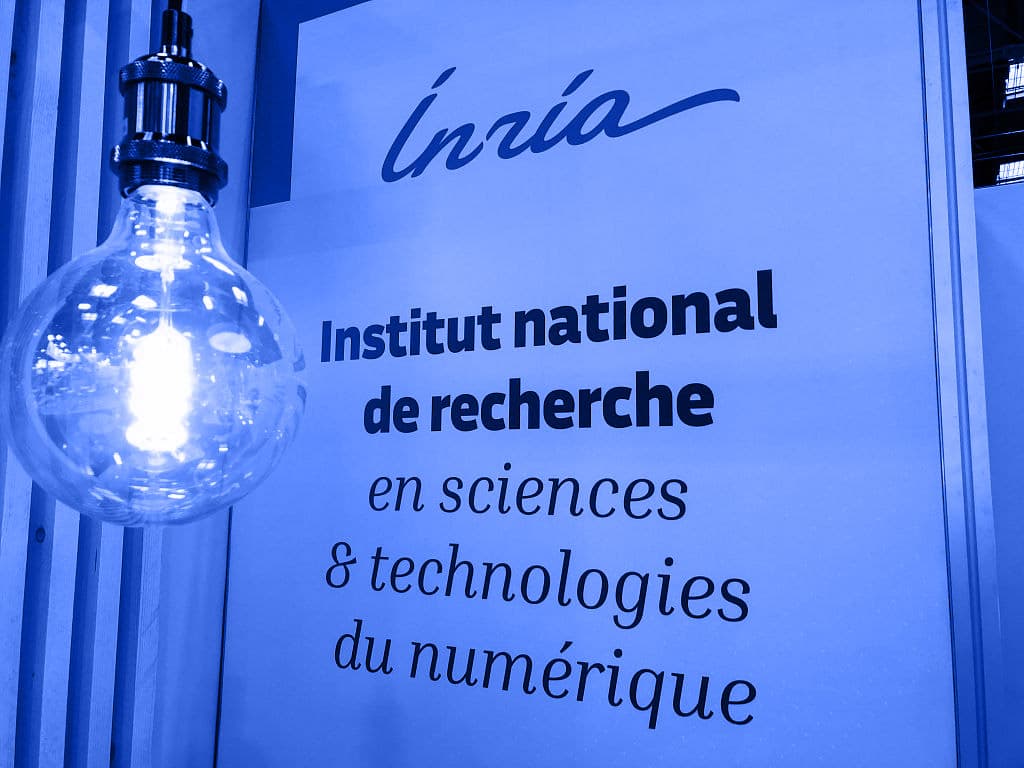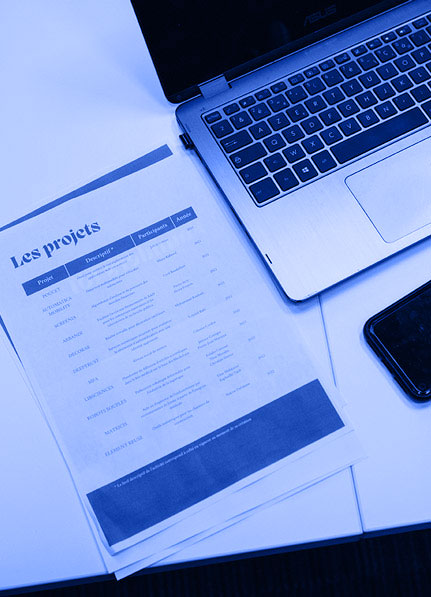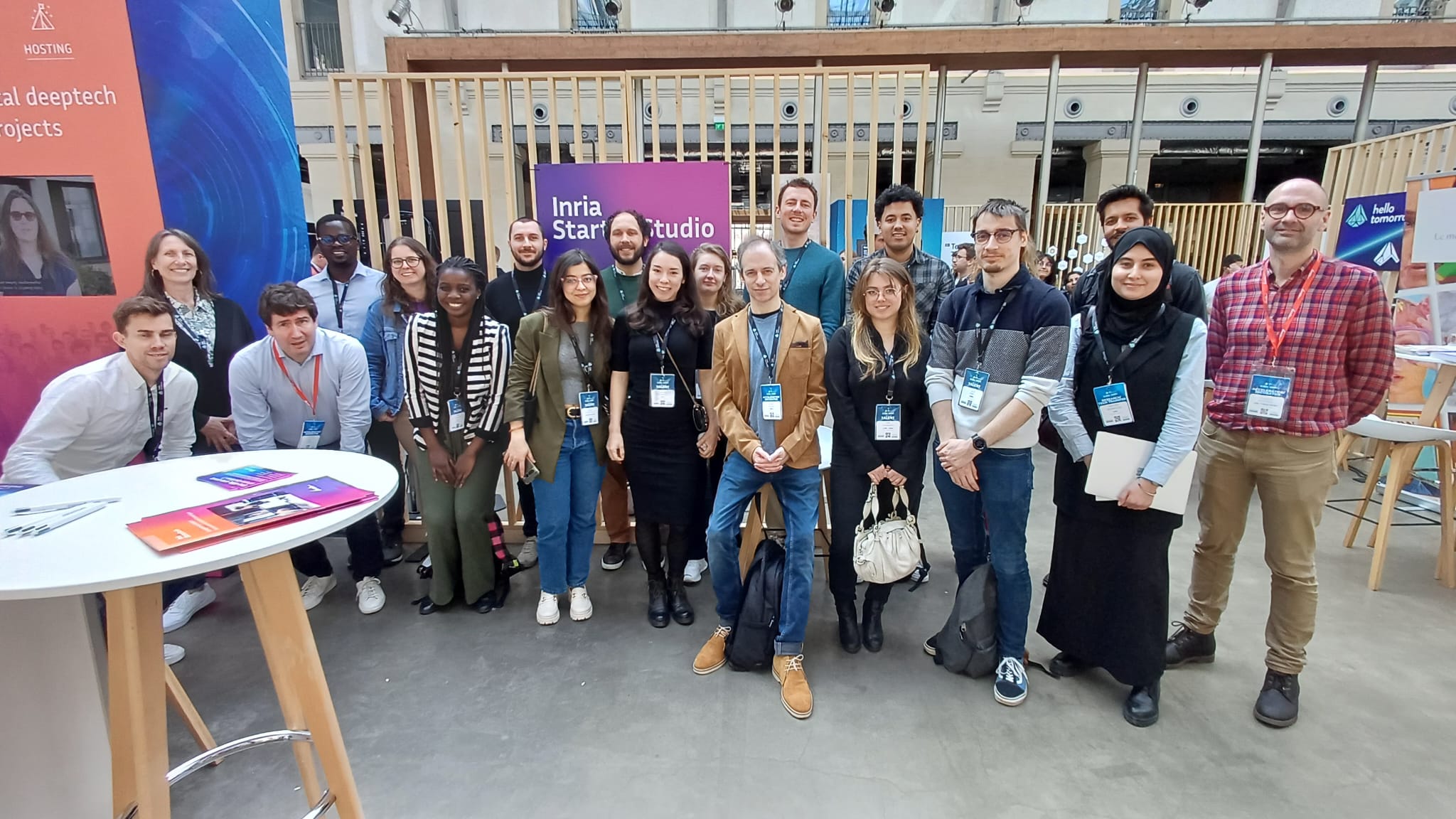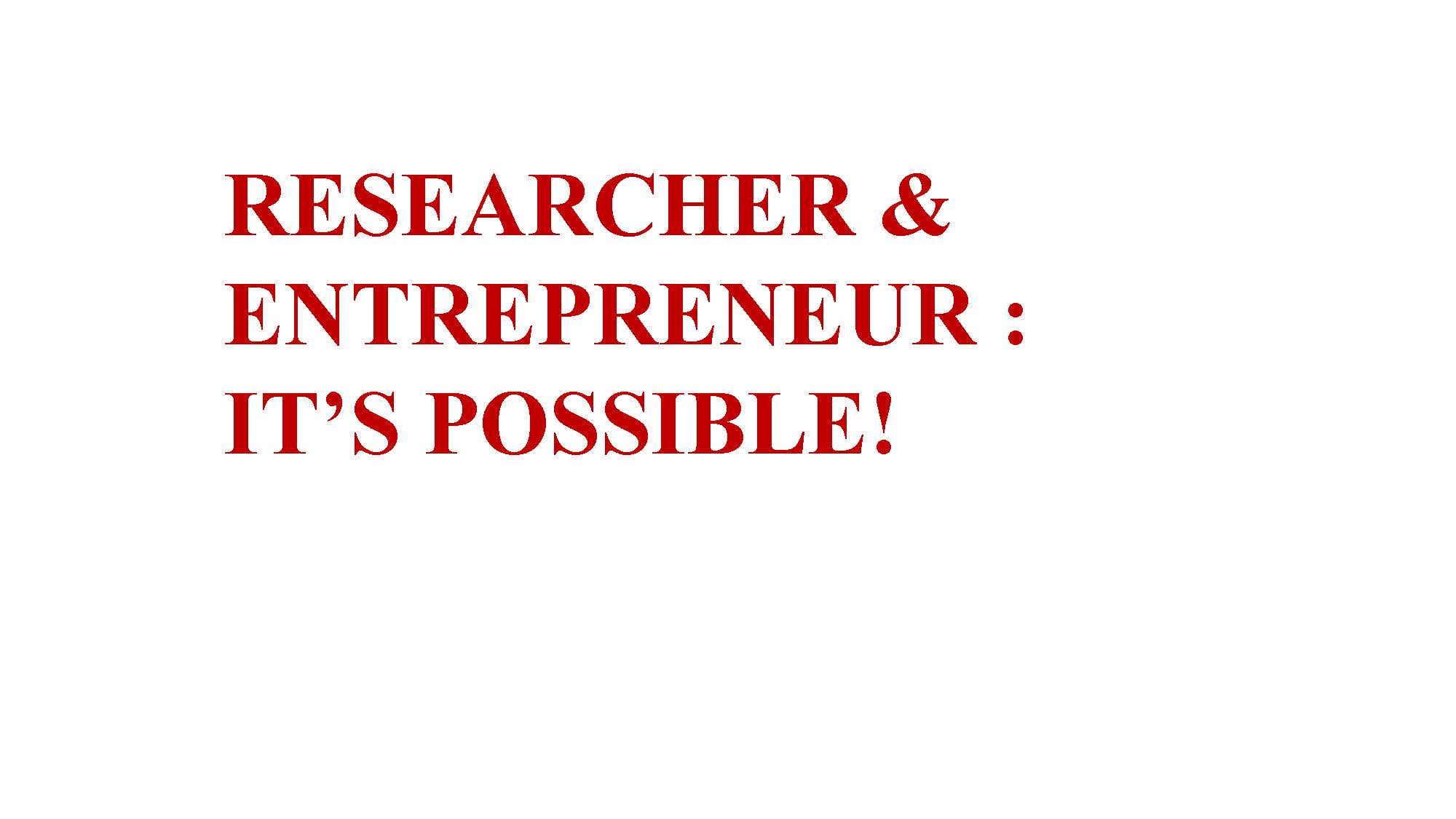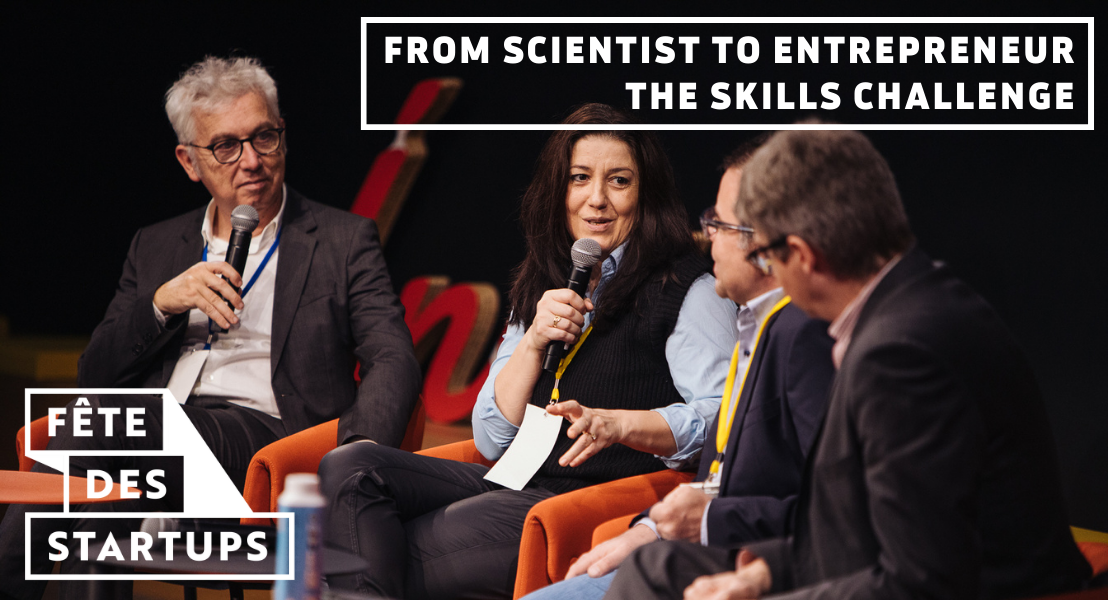
From scientist to entrepreneur: the skills challenge
The Inria Startup Studio Startup Festival explored the transition from research to entrepreneurship around 3 round tables and a keynote. Skills, financing, success or reorientation, these exchanges highlighted the sharing of experience in order to enable entrepreneurs to resolve the challenges linked to the creation of a digital deeptech startup. The first round table addressed the theme of skills on the path from scientist to entrepreneur: what are the fundamental differences between the two? How do they get rich? What qualities are necessary for the success of your project? Adriana Gogonel, CEO of Statinf, Pierre Alliez, researcher at Inria, and François Germinet, director of the knowledge center at SGPI answered these questions!
Scientific research and entrepreneurship are often opposed. However, the sum of the similarities between the two positions often exceeds that of the differences, as explained by Adriana Gogonel, CEO and co-founder of Statinf, Pierre Alliez, researcher and team leader at the Inria center at Université Côte d’ Azur, and finally François Germinet, director of the knowledge center at the General Secretariat for Investment, on the occasion of the Startups Festival organized by the Inria Startup Studio on November 30, 2023.
The skills challenge
- What are the common qualities necessary for the success of a research project or an entrepreneurial project?
- What are the fundamental differences between the two approaches?
- How can these two worlds mutually enrich each other?
These are the different questions that the members of the round table “The skills challenge” tried to provide answers to during the Startups Festival organized by the Inria Startup Studio on November 30. An intervention during which an essential observation was made: scientists and entrepreneurs share the same mission, namely that of finding solutions to the problems posed to them!
Similarities between research and entrepreneurship
Interviewed by Hervé Lebret, co-director of the Startup Studio, Pierre Alliez, researcher and team leader at the Inria center at Côte d’Azur University, but also scientific advisor to the startup AIVerse, specialist in generating images intended for machine learning, detailed the similarities he found in these two functions: “Whether we are doing research or developing a startup, we spend a lot of time brainstorming. When I attend given conferences by researchers or that I accompany AIVerse to trade shows, in both cases I listen to the comments and feedback given to me. This allows us to bring ourselves back to reality, and to progress in our objective common, which is to develop the best tools for engineers, and thus become the standard toolbox, integrating algorithms which will be used by hundreds of thousands of people around the world!”
Scientists and entrepreneurs: sharing challenges
This observation is shared by François Germinet, director of the knowledge center at the General Secretariat for Investment (SGPI): “In the past, I was a researcher, then President of a University, before joining the SGPI. I’ve never had the impression of changing careers! Each time, it’s about understanding what problems need to be resolved, then identifying ideas that are likely to provide solutions. In this sense, doctoral students and entrepreneurs share a lot: throughout our studies, we are used to finding the solutions to our problems at the end of the textbook. Which is no longer the case in doctorates! It is then a question of surrounding ourselves with the right people , and to hope to have the right intuitions. We often realize that the questions at the origin of our theses were not well formulated, and that the answers we provide are therefore not completely satisfactory. But they can respond to problems that we had not identified at the start!”
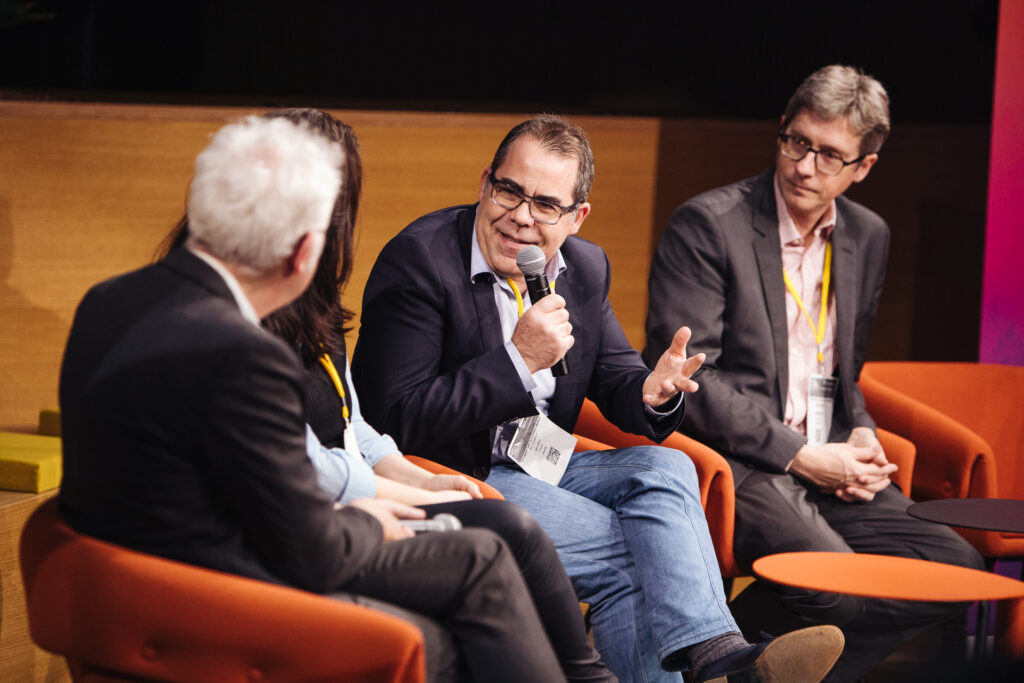
The key: knowing how to surround yourself
Hence the importance of remaining agile, interacting with your ecosystem and listening to your partners and customers to seize opportunities to evolve. “The interest in interacting with the market is to identify new uses that had not been imagined by the research teams,” explains Adriana Gogonel, CEO and co-founder of Statinf, a startup specializing in analysis. performance of multi-core processors which was supported by the Inria Startup Studio in 2019. However, this way of being is not always innate among researchers: “Our great difficulty is that we have to learn to sell. Researchers are used to waiting until they have found something before communicating about this discovery. Conversely, a startup often has to sell something that does not yet exist!” Fortunately, according to her, researchers and entrepreneurs have one thing in common: “In both cases we must learn to manage a project from start to finish, often with few resources, which pushes us to become more and more versatile.”
Perfect research and entrepreneurial pragmatism
A necessary ability to evolve, while entrepreneurship inevitably implies a change of posture: “When they publish, researchers tend to want to write the perfect research paper, which closes the subject for good. But this “Terminator” paper, as I call it, has no equivalent in the world of entrepreneurship, where we often have to evolve our approach to respond to a market that is always in motion. This pushes us to be more pragmatic,” explains Pierre Alliez, who also highlights the need to surround oneself well: “In my research team, we try to vary the profiles as much as possible, both in terms of origins and level of study. Undergraduate interns work with post-docs from India, which offers us great complementarity.”
“We need to mix skills,” adds François Germinet, emphasizing the importance for entrepreneurs to unite around them an ecosystem made up of varied actors, who will feed off each other: “We need to encourage interactions between researchers, startups, manufacturers and customers, just as we must create bridges between engineering schools and business schools, which each year train young people who sense the evolution of society and the market but lack the technological skills to seize these opportunities.”
Strategies to face financial and temporal challenges
A mix of skills which also makes it possible to respond to the other challenges of entrepreneurship raised on the occasion of the Startup Festival, namely the search for financing and the difficulty of reconciling the rhythm of research and that of business. “Over time, you learn that you have to develop a whole range of products: the most basic ones are quicker to market and provide you with the means to continue your research and obtain other funding to develop more sophisticated tools. These different dimensions, research, prototyping then marketing, are done at very different paces”, analyzes Pierre Alliez, joined on this point by Adriana Gogonel: “It is the most difficult subject to assimilate for a researcher, who will always want to achieve perfection, without having the time. To keep up, you need to surround yourself with highly motivated people. That’s what makes all the difference.”
Clément FAGES
Publication date: 19/01/2024
Want to get started ?
